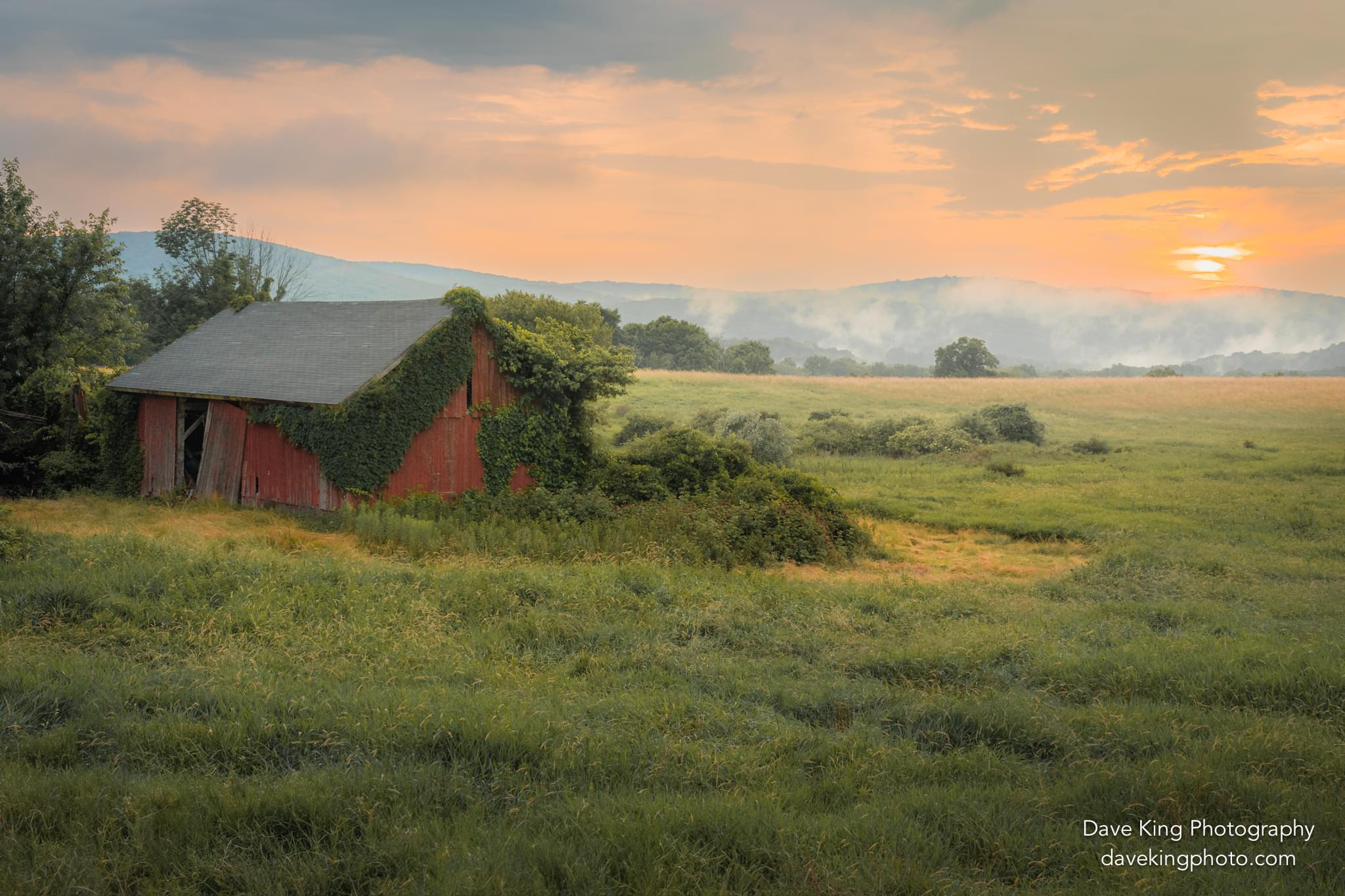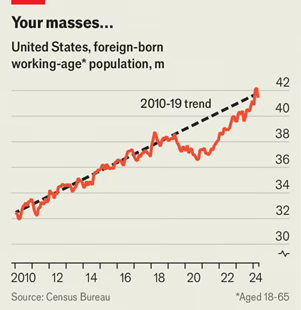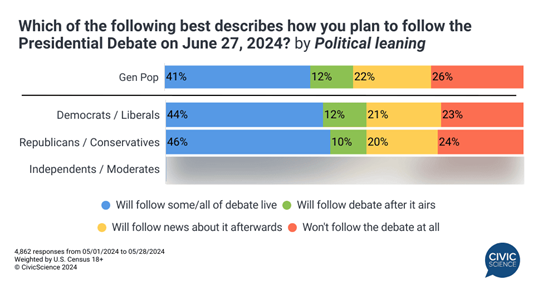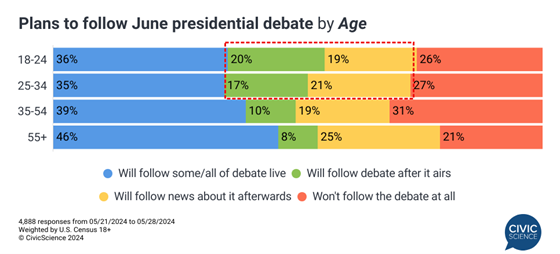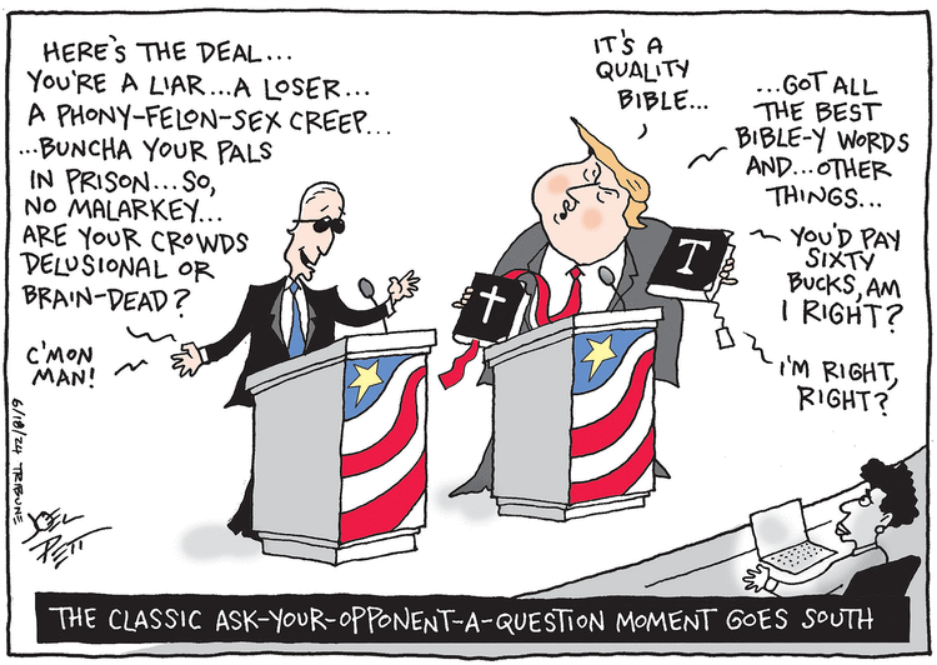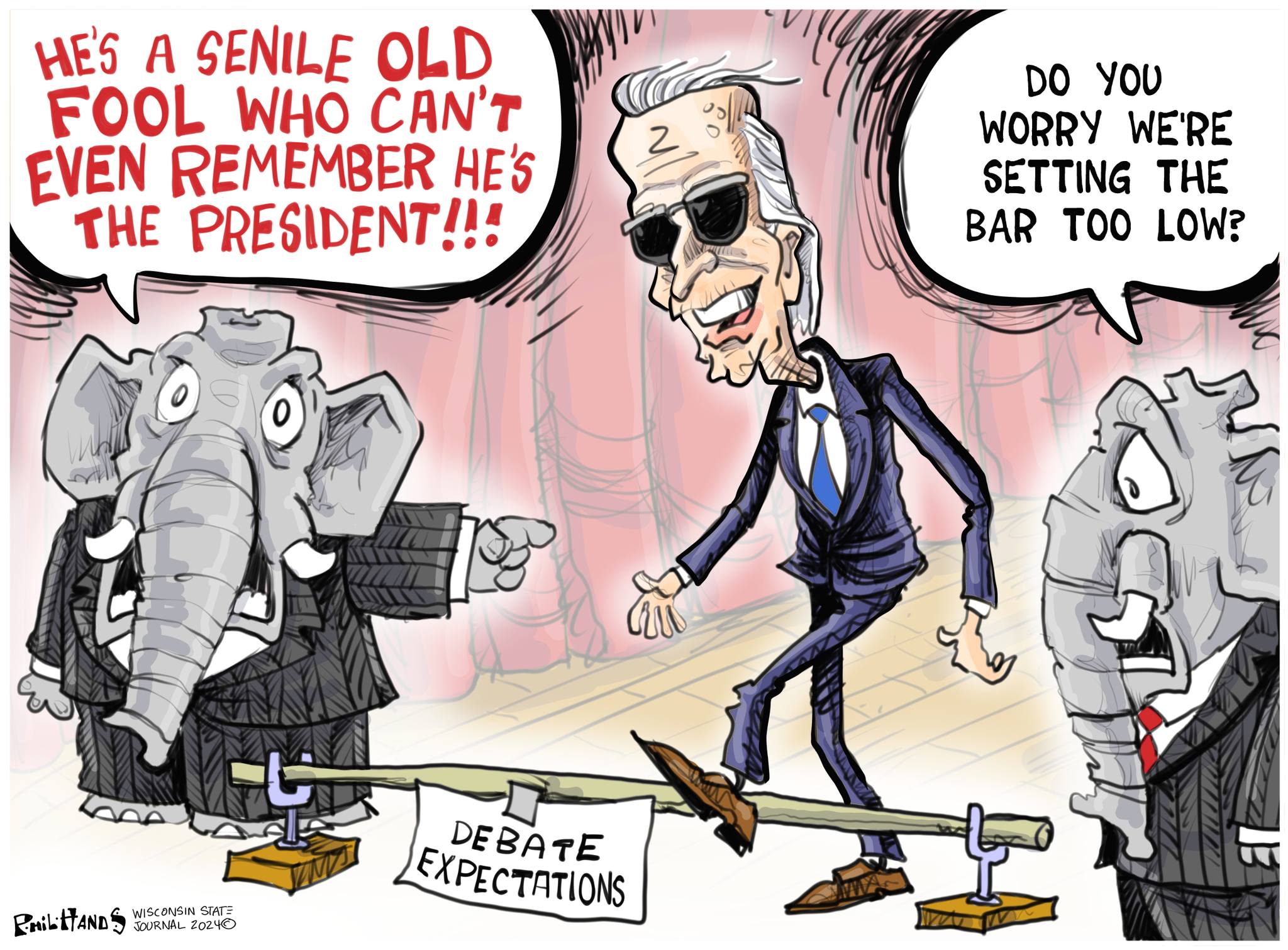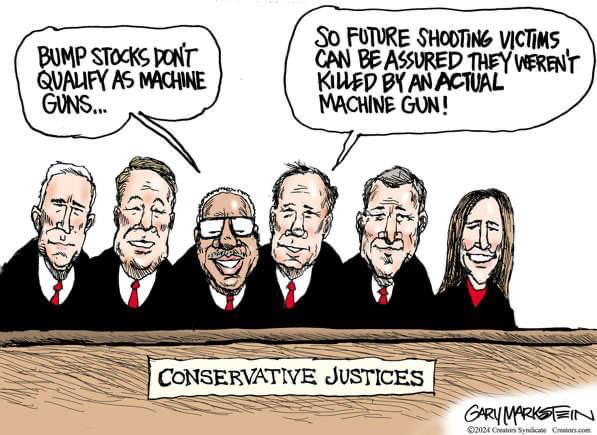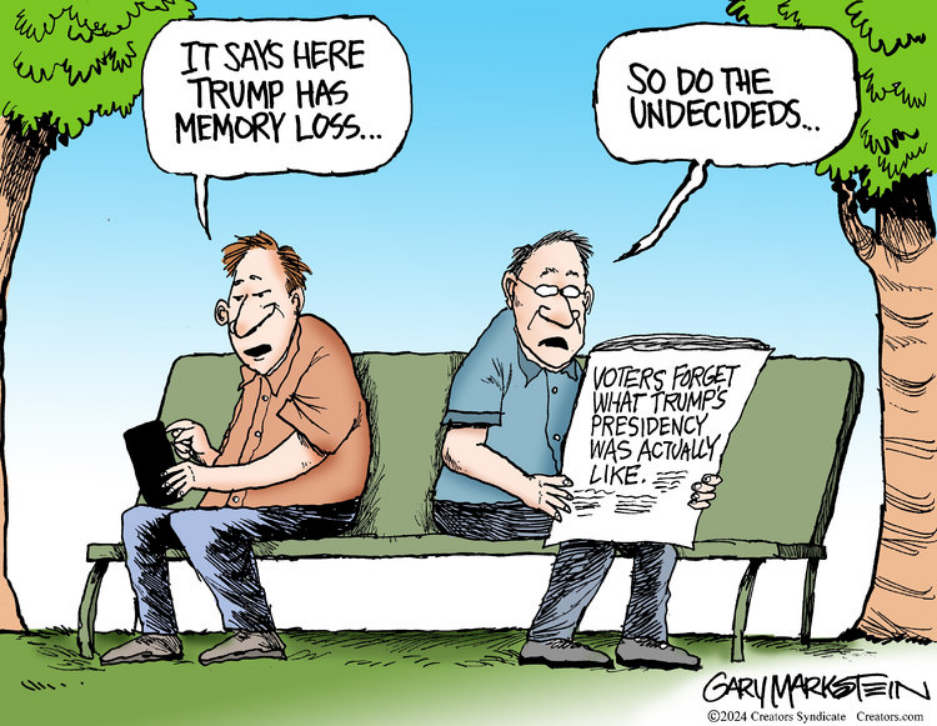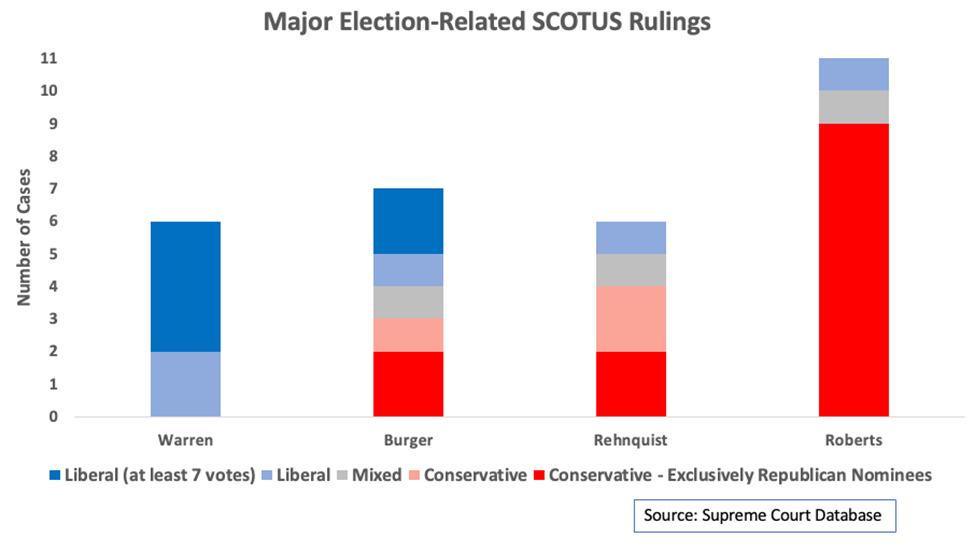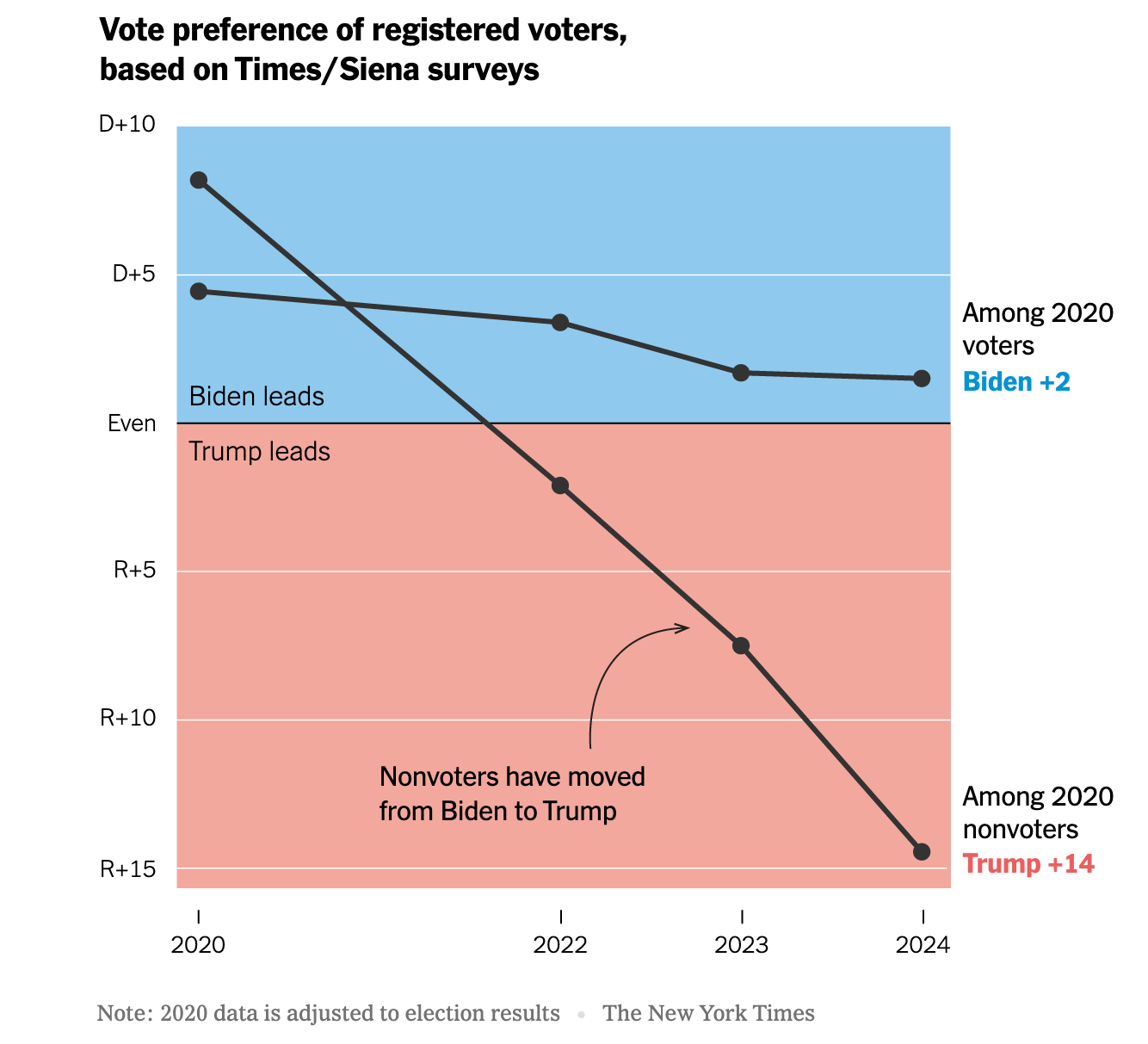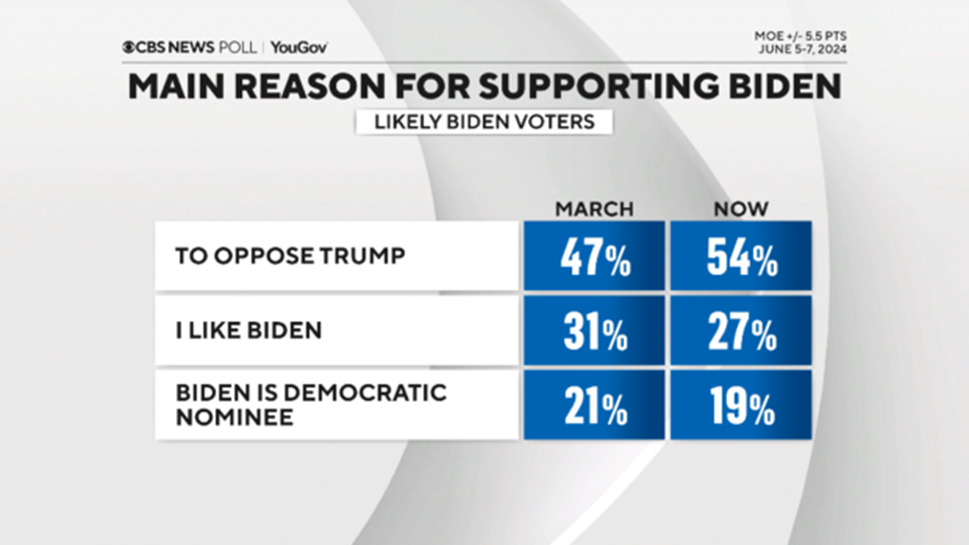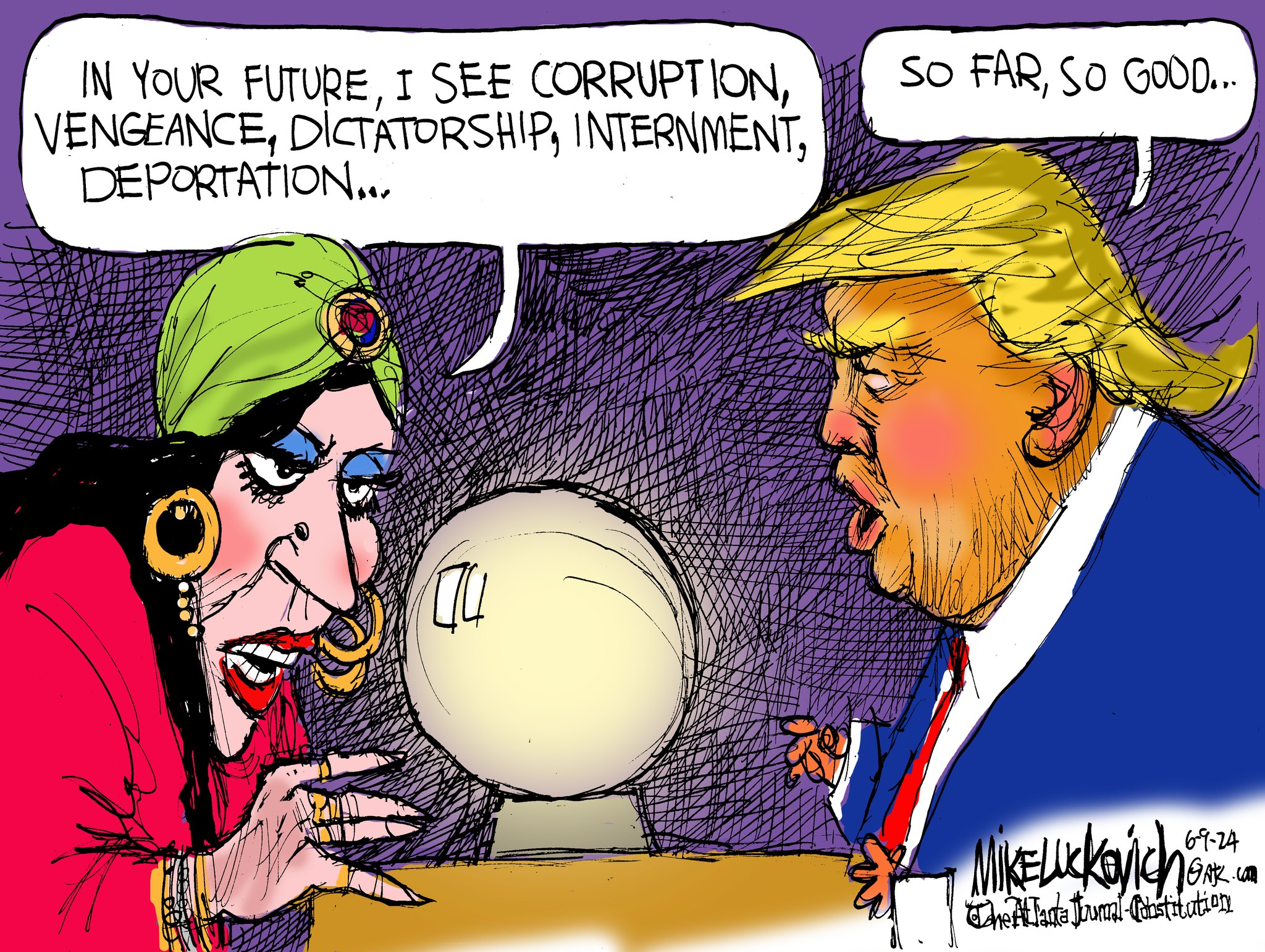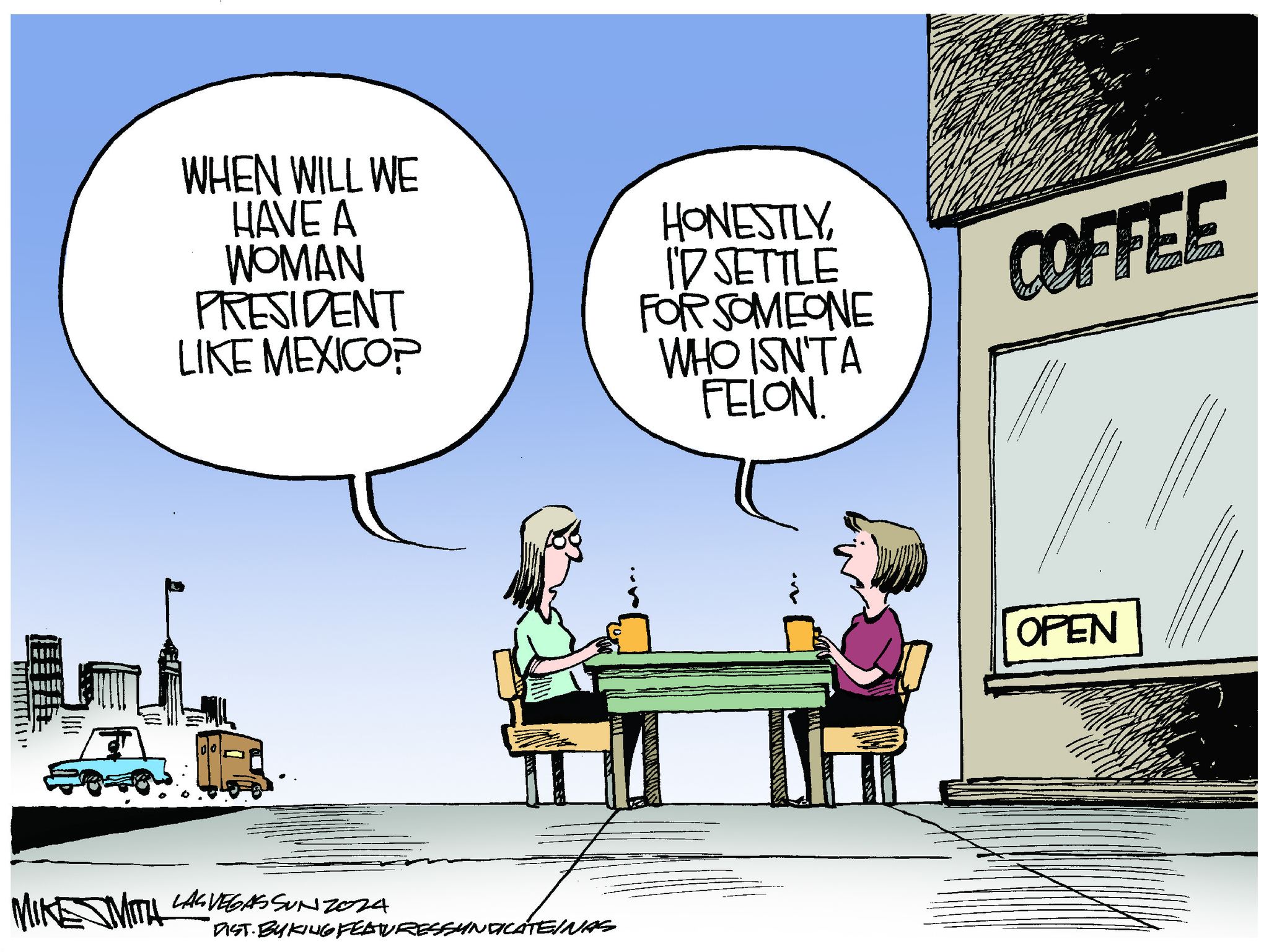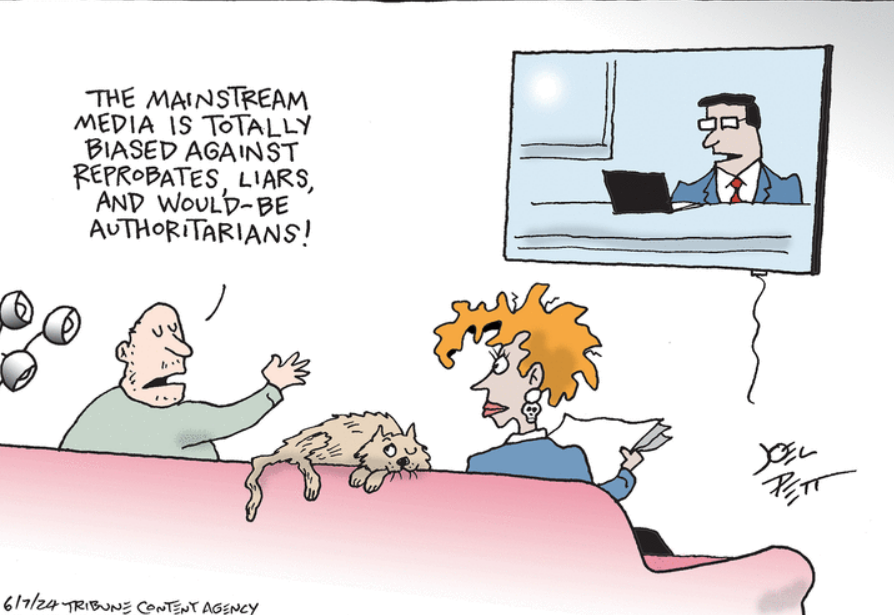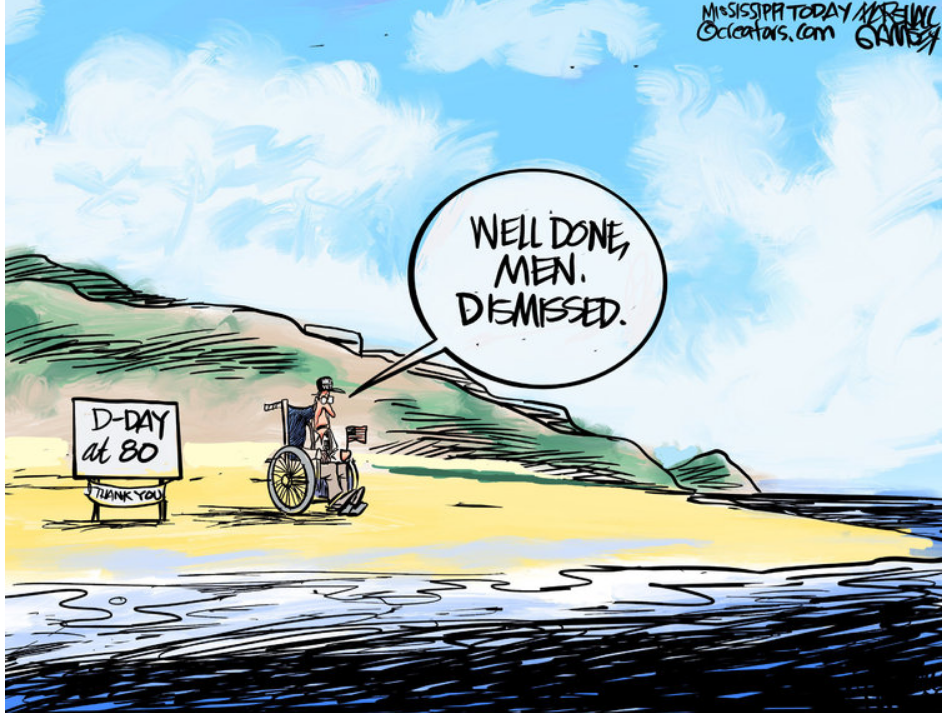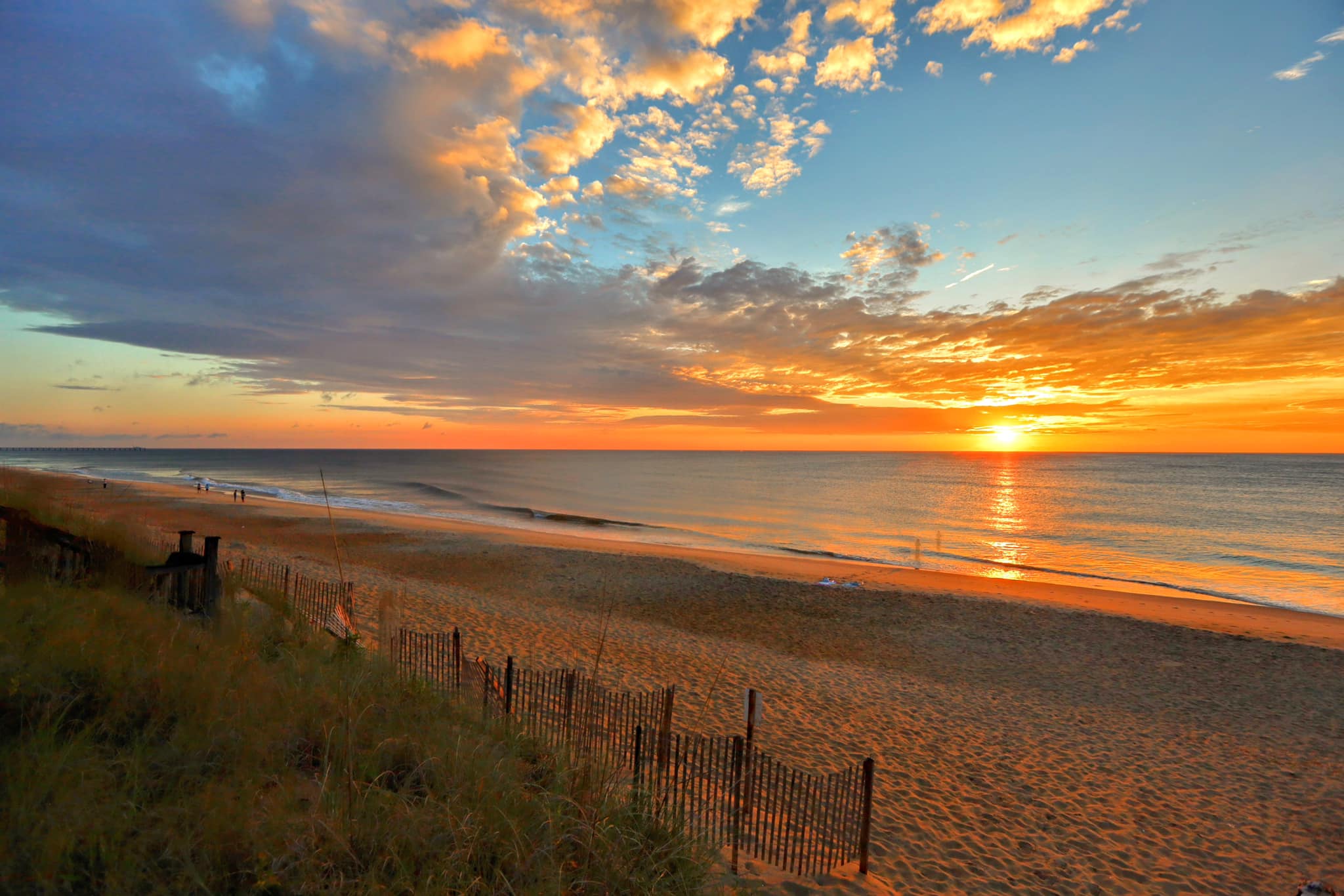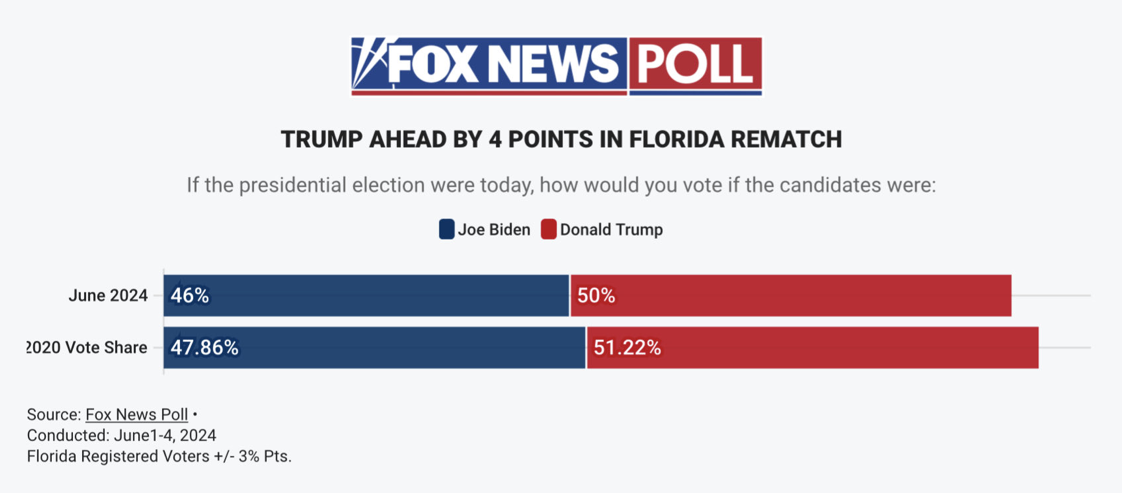The Daily Escape:
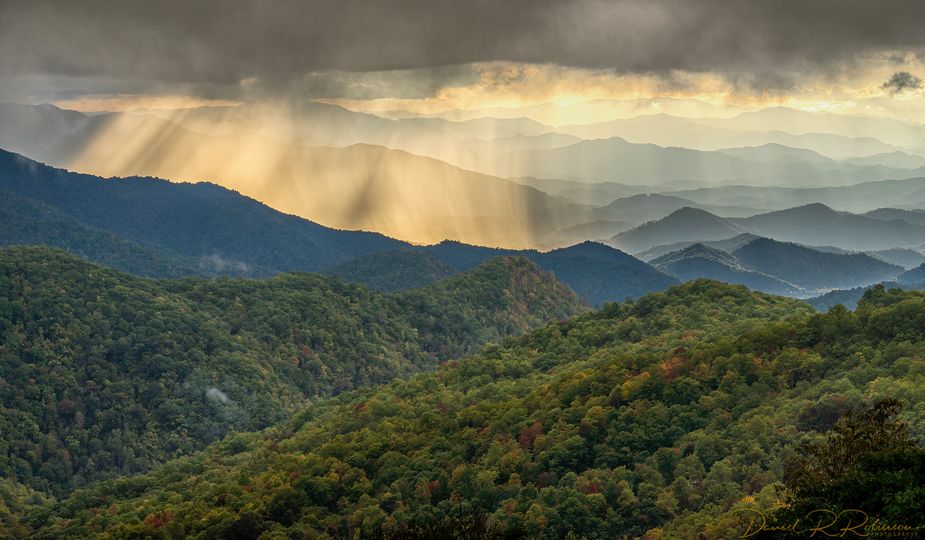
Rainstorm, Blue Ridge Mountains, Blue Ridge Parkway, NC – June 2024 photo by David R. Robinson
It’s a new day and we’re trying to pick up the pieces after what happened in last night’s debate between Trump and Biden. Here’s a recap by Rick Wilson, Lincoln Project co-founder:
“It’s late June, and Joe Biden went on stage with a felon who tore down America, told 500 sundry lies, bragged about ending Roe v. Wade, defended January 6th, denied having sex with a porn star, and promised to betray Ukraine. And Joe Biden had a bad, bad night.”
Biden stumbled over his words, and Trump’s barrage of lies went unchecked. On Twitter and on cable news, the political pundit class had a collective freakout. From political journalist John Nichols:
“CNN is illustrating how a ‘debate’ when the moderators reject the basic responsibility of fact-checking in real time, and refuse to challenge blatantly false statements, is not a debate. It’s…chaos where lies are given equal footing with the truth.”
When Wrongo heard that CNN wouldn’t be doing any real time fact-checking on Thursday afternoon, it was clear how the debate would go. Only now, the Democrats and Biden can’t tell people they didn’t see what they saw.
A lot of media people are SHOCKED at Biden’s performance. Dem consultants see that there is blood in the water and the sharks are circling. So many senior Dems are saying that Biden should step aside. The options are pretty simple:
- Convince Biden to drop out of the race.
- Stick with Biden and hope his debate performance doesn’t turn many voters away.
There are LOTS of Dems who want option #1. But it will be impossible to get Biden to drop out if he doesn’t want to do it. And there are NO signs that he wants to it.
Any plan to ease Biden out would likely require the involvement of Jill Biden and Barack Obama, along with assembling a pre-fab, pre-convention ticket acceptable to the Party’s delegates.
Otherwise, it would be a free-for-all. Even with Biden and Obama’s backing, that’s a huge undertaking with a 10 out of 10 degree of difficulty. It also entails massive risk with the convention delegates, the public, along with the challenges of spinning up a presidential campaign from a standing start. No Democrat on the sidelines today has the national organization in place to make a credible presidential run. They would have to take over the Biden campaign’s assets and move on from there.
Get a grip: One candidate on the stage lied from start to finish. And no one is suggesting that he drop out.
The media has been on the verge of burying Biden because of his age for months. That was never more true than on CNN on Thursday night, where their coifed pundit-moderators ignored the elephants in the room – that one of the two men standing at the podiums was a convicted felon, the leader of a coup attempt, an alleged thief of national security documents, who was earlier this year found liable in a civil court for rape, and has promised to usher in a vengeful authoritarian regime if he returns to office.
Instead, they launched the debate with their usual dead horse: the deficit and taxes. More from Wilson:
“History is replete with bad debate performances: Clinton’s first outing in 1992, George W. Bush’s Boston groaner (I was there, and it was awful), and Obama’s first showing against John McCain. Debates matter until they don’t, but they matter most to the chattering and online classes.”
All of those debaters won the presidency.
Biden is still overwhelmingly likely to run for reelection; he’s still is in a position to be re-elected. Biden, even diminished, is more right than wrong, that at this point he represents the Party’s best chance to keep Trump out of the Oval Office.
Biden did the best he could with an opponent who is unconstrained by the truth and moderators perfectly willing to allow Trump to lie. Unfortunately while Biden started weak, he finished stronger, while Trump started strong, he finished weak.
But Wrongo assumes that many people stopped watching after the first break.
So while some Democrats are in a panic about Joe Biden’s debate performance, we need to get a clue and check in with reality. It was probable that Biden was unwell and fatigued. Imagine how well you’d perform under the same conditions, regardless of your age.
Swallow your panic and get to work, doing whatever you can. Because for many Americans, this is personal. Your guy had a bad night. But the sun is out today. Move forward. Stop being afraid of your own shadow. We’re running against an insurrectionist and a felon. Biden is old. Stop being afraid of it.
We’re having our Saturday Soother on Friday this week, for the obvious reason that it’s necessary. On the Fields of Wrong, a very large tree fell across the long driveway of two of our neighbors. It says a lot that five or so of the men in the neighborhood worked together over two days to reopen the road. It did require borrowed and rented capital equipment: a scoop loader, a tractor and a wood chipper.
It’s going to be a cooler and drier Friday and Saturday in Connecticut. So let’s grab a seat in the shade and do our best not to think about the Supreme Court’s continuing efforts to end democracy as we used to know it. Try instead to take a few moments to gather ourselves for the slings and arrows of the week to come.
Start by listening to “Uncle John’s Band” by the Grateful Dead. It started appearing in their concerts in1969. The band recorded it for their 1970 album “Workingman’s Dead”. It was written by guitarist Jerry Garcia and lyricist Robert Hunter. The tune was played more than 330 times by the Dead and the lyrics seem to Wrongo to be valuable today:
Sample Lyrics:
Well, the first days are the hardest days
Don’t you worry anymore
‘Cause when life looks like Easy Street
There is danger at your door
Think this through with me
Let me know your mind
Woah, oh, what I want to know
Is are you kind?
Goddamn, well, I declare
Have you seen the like?
Their walls are built of cannonballs
Their motto is “don’t tread on me”
Come hear Uncle John’s band
Playing to the tide
Come with me, or go alone
He’s come to take his children home

